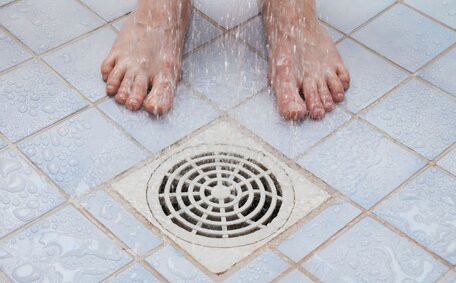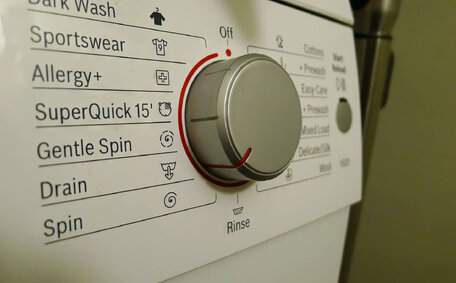
Baking Soda & Vinegar for Cleaning
Using baking soda & vinegar separately for cleaning is very effective; but mixing them dilutes their cleaning power. Learn how to use them properly.
Read MoreApartment building plumbing systems involve more complex components and considerations than standard residential structures. A key challenge is ensuring adequate water pressure and supply to each unit, which depends on properly functioning pumps, pipes, and other equipment.
In highrise multifamily buildings, the municipal water supply feeds into vertical stacks and horizontal branch lines that distribute water across each floor. Waste water goes down drain through stacks, serving as vital sanitary drainage conduits designed to efficiently move water down to underground sewer lines.
Issues like leaks or clogs can quickly spiral in a multiple dwelling setting and lead to major damage if not addressed promptly. A clear understanding of plumbing operations in such multi-level environments is essential. Regular maintenance and critical repairs by commercial plumbers can prevent significant issues within the plumbing system.
Vertical stacks are critical components through which the water comes in, distributing supply and removing waste in multi-storey buildings. Separate stacks support distinct plumbing fixtures and appliances.
Soil stacks efficiently carry waste from toilets and floor drains down to the sewer system. Waste stacks connect sinks, tubs, and showers to horizontal pipes. Vent stacks release sewer and natural gas outside while regulating air pressure.
Water from the municipal supply flows upward through vertical supply stacks that are crucial to the building’s plumbing system, and then connects to horizontal branch lines, which serve multiple units. However, Thermostatic mixing valves play a crucial role in maintaining consistent water temperatures, compensating for pressure loss as water ascends. Boosters and regulators are thus installed to provide even pressure.
Understanding this layout is key for diagnosing and preventing plumbing issues in highrises. Engaging qualified plumbers to regularly inspect and maintain stacks and supply lines throughout the building is essential, especially in apartment complexes.
Common areas such as lobbies, stairwells, ground-floor basements, and rooftops require clear definitions to delineate responsibilities. Assessing who takes responsibility for maintaining strata plumbing infrastructure in shared areas usually falls to the body corporate. This includes leaks or blockages in vertical stack, drain lines, supply pipes, and other equipment.
Meanwhile, individual owners are accountable for all plumbing can fixtures inside their own units, such as sinks, toilets, baths, laundry, and kitchen facilities. However, confusion can arise when an issue originates from shared infrastructure but presents itself within an individual unit, or vice versa.
Lot owners need to be vigilant for signs indicating issues stemming from shared areas, like low water pressure or sewer gases entering the unit, and promptly inform the body corporate.
Likewise, the building manager or body corporate must act urgently to address any issues affecting residents. Using management software facilitates clear communication and meticulous repair tracking, while regular inspections help prevent and quickly resolve plumbing problems.
Key plumbing issues to monitor include:
Determining the source of plumbing issues is frequently a complex task.
Locating the precise areas affected by leaks and blockages requires the expertise of commercial plumbing services. Inadequate pressure often stems from faulty booster pumps or deteriorating pipes disrupting water flow.
Thorough diagnosis requires checking aspects from vertical stacks, horizontal pipes, to the pumps and distribution lines traversing the building. Exact causes may be tricky to uncover as problems can propagate from one system to another.
Enlisting a professional plumber like Lilyfield Plumbing is highly recommended.
Being proactive with plumbing maintenance tips is vital for multi-storey buildings to avoid issues spiralling out of control. We recommend several key strategies:
Ensuring residents promptly report any drips, leaks, odours, or pressure issues is crucial for immediate emergency plumbing assistance. A plumber must be capable of evaluating and addressing plumbing problems before significant damage ensues.
Taking in these maintenance tips with a proactive approach in a multistory apartment reduces reactive maintenance down the line. Minor issues don’t escalate into huge headaches. With Lilyfield Plumbing’s preventative plumbing packages, multi-storey buildings stay complaint, safe and save on substantial repairs.
Unique challenges arise in multi-storey building plumbing, given their extensive scale and complexity. Innovative techniques such as pipe relining provide efficient repair and maintenance options.
Pipe relining involves inserting a flexible epoxy resin lining into existing pipes to seal leaks, restore flow, and reinforce the integrity of pipes without digging or destruction. This trenchless method is ideal for multi-storey buildings Where intrusive measures like ripping up walls and floors for pipe replacement can cause disruption and highlight plumbing issues within the structure.
Other advantages include:
Lilyfield Plumbing’s licensed technicians utilise the latest relining techniques as part of our all-encompassing plumbing services for commercial properties. With our state-of-the-art leak detection, 3D pipe mapping, and advanced diagnostics, we specifically cater to the needs of commercial building environments, ensuring precise identification of issues.
Upgrading ageing parts and underground lines of a building’s plumbing infrastructure with innovations like epoxy relining by a proficient plumbing team saves multi-storey complexes substantial time, money and disruption over the long run. Contact our team about revolutionising your plumbing today!
When comes to plumbing systems in multi-storey buildings, it is crucial to hire licenced and insured professional plumbers to perform any installation, maintenance or repair work.
Choosing Lilyfield Plumbing ensures adherence to strict industry regulations, providing you with peace of mind.
We assure a 6-year warranty on all plumbing work and components, offering our clients reassurance of quality.
These certificates demonstrate that both residential and commercial works comply with national plumbing standards, preventing future issues.
We have tackled leakage, corrosion and pressure problems in buildings across Sydney. Our team efficiently resolves any plumbing challenge, no matter its size.
Whether you require assistance for all your plumbing concerns or need repairs to be carried out, Lilyfield Plumbing harnesses the expertise to get systems running efficiently again.
Contact us on 1300 349 338 or at [email protected] to schedule an on-site inspection or discussion about solutions tailored for your multi-storey property.
It’s important for multi-storey building owners and body corporates to understand their building insurance policies as they relate to plumbing systems and repairs.
In NSW, Domestic Building Insurance (DBI) covers plumbing works in residential buildings up to two three storeys in most cases. Buildings higher than three storeys require comprehensive policies to address their scale, complexity, and sophisticated drainage systems.
Aspects to consider around plumbing include:
Policies should make clear which party – individual lot owners or the body corporate – is responsible for specific plumbing systems and repairs.
We encourage the strata community, including management, executives, and lot owners, to liaise with insurance brokers to ensure accurate plumbing cover and a solid grasp of the claims process. Keeping detailed plumbing condition reports also aids prompt assessment if issues arise.
At Lilyfield Plumbing, our licenced technicians can conduct thorough reviews of plumbing systems and provide advice for tailoring insurance to match. Protecting multi-storey buildings from major financial risk is paramount.
Using baking soda & vinegar separately for cleaning is very effective; but mixing them dilutes their cleaning power. Learn how to use them properly.
Read MoreBlocked drains are usually caused by buildup of hair, grease, debris and more in your pipes. Fix the problem with professional drain unblocking services to get your drains flowing freely again. Contact us for affordable drain unblocking.
Read MoreWhen you suspect a gas leak or damaged gas line, contact a licensed gas fitter immediately to locate and repair it. A gas line repair involves sealing leaks, replacing corroded or damaged pipes and testing all connections for safety before restoring gas supply.
Read MoreLilyfield, 2040 NSW
We will call back as soon as possible.




